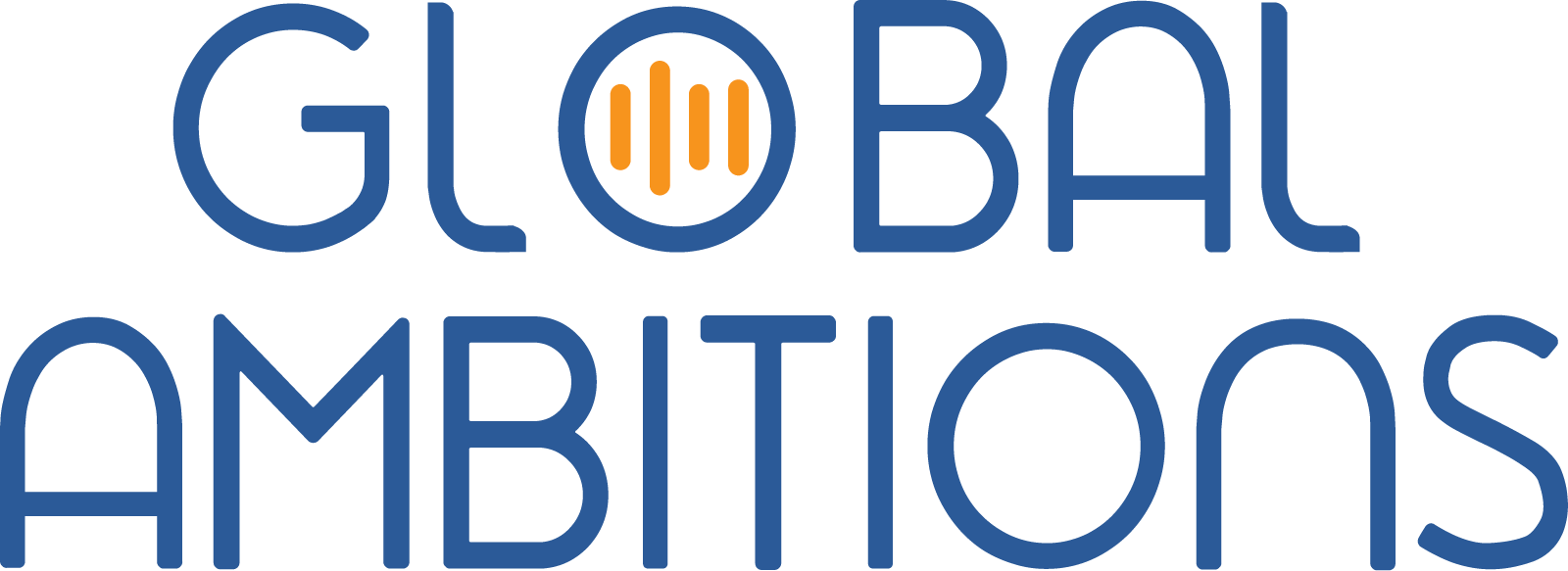With John Hayato Branderhorst, Senior Strategist at btrax
Below is a full transcript of this episode
Stephanie Harris
Hi, I’m Stephanie, and I’ll be your host today for this Global Ambitions podcast episode. Our topic today is taking business to and from Japan. And our guest is John Hayato Branderhorst who is a senior strategist at btrax, an innovative design company specializing in UX and service design. Hi, John. Welcome to the program.
John Hayato Branderhorst
Hi. Thank you for having me.
Stephanie Harris
Well, it’s great to have you here today. Would you like to introduce yourself?
John Hayato Branderhorst
Yeah. So as you mentioned, my name is John Hayato Branderhorst and I have been spending the last 15 plus years helping companies enter Japan and also come from Japan and enter the U.S. market.
Stephanie Harris
So I guess we’ll just jump right in there. My first question to you is, what is the top challenge you’ve faced when taking clients into Japan?
John Hayato Branderhorst
So I think I probably have two answers. So, unfortunately, there’s no top for me. One is when a company that is interested in Japan has this global strategy and they don’t really want to adjust it at all for the Japanese market. The Japanese are very unique.
The second would be, is when the product itself, or the service, they are not really understanding that the value proposition may be different for the Japanese market.
Stephanie Harris
So when you say that people are hesitant or don’t want to adjust, how do you get around that when you’re talking to them? How do you convince them, I guess, that they really do need to make those adjustments in order to be successful?
John Hayato Branderhorst
A couple of ways. I would say the first way is whenever I start having conversations with companies who are interested in Japan, I do some initial research. So I try and share insights right off the bat on the market opportunities or if they’re already in Japan , because we work with companies that are already in Japan and want to grow, we look at brand sentiment. So trying to share as much education and knowledge right off the bat, that’s probably the starting point.
Stephanie Harris
What options are there for getting Japanese input into that? Is it all like market research that you do or how how do you get that data?
John Hayato Branderhorst
Right. So there’s a few different ways, depending on the industry, you know, whether it’s B2B, B2C. But market research is that initial kick-off of helping companies enter the Japanese market. Sometimes they’ve done research themselves. We like to look at it and then we adjust what we’re going to do. And depending on if it’s a totally new type of service or product, a lot of qualitative studies will come into play. We have UX researchers to handle that.
So just to be clear, I’m not the one running that these days. And then we also kind of like amplify some of those findings with surveys, online surveys, depending on also what part of Japan. If you’re looking at the whole Japanese market, a lot of times companies are looking at just Tokyo as their kickoff point.
Although, a quick tidbit, that has not been the case with a lot of these food delivery companies that are entering the market. Like when you look at UberEats, DoorDash, these other companies. Yeah, they’re kind of going after these tier two markets. I would say just because Tokyo is so, you know, dense and like saturated, I would say.
Stephanie Harris
This might be going a little bit off on a tangent. But public transportation, they’re really good in Japan, right? It’s mostly like trains and things like that. For these sorts of startups who are very much more car based. Has that been a big adjustment?
John Hayato Branderhorst
I think if you’re talking about Uber, that I don’t know if people are aware, but Uber in Japan is basically UberEats. You’re not doing the Lyft or Uber services. Like you said, public transportation is really great. So taxis, trains, especially in the cities. Outside of the cities, I think there’s more of an opportunity. But you got to really understand the regulations and work with the system. Don’t try and hammer your way in.
Stephanie Harris
Right. That’s a good example right there of how someone had to adjust their value proposition going into Japan for sure.
John Hayato Branderhorst
Exactly.
Stephanie Harris
How would someone go about saying that, “Hey, I know I need a partner to help with the local logistics in this place.” How do they find that person if they don’t have local people on the ground?
John Hayato Branderhorst
I mean, there’s a couple of different ways, right? Like I would say, there are government initiatives on both sides of the Pacific that support finding the right partners. It depends on your business model. If you are looking for a sales team, there are partners. I don’t personally work on the sales development side. Now what I’m working on it’s kind of the digital marketing, marketing research, and strategy side.
But the beautiful thing is, it’s like if you were to talk to me and I’m not the right person, I will help you find the right person. That’s kind of the thing that you’ll find, especially with those of us who work in the same area. Like I can tell you, you know, five different agencies that help companies enter the Japanese market. And hopefully, you know, the agency I’m working with is in the running. But, if we’re not the right fit, I can help you find the right one.
Stephanie Harris
So that’s sort of talks about maybe the logistics and staffing on the ground. I guess some other issues that we often hear from companies either going to Japan mostly is when you go over there, you need to have everything translated. There’s no English anywhere. You need to have someone who speaks Japanese, all of those sorts of issues. I mean, we’ve heard these for many years in the past, but are they still true in this day and age? And do you really need those?
John Hayato Branderhorst
You will need somebody who does speak Japanese. I think the learnings that people have had in the last few years, I would say, is it’s that shouldn’t be the only thing you’re looking for, though. Like a lot of times when you hire a country manager entering the Japanese market, the fact that they speak English should not be the reason you hire them. Right.
So making sure that especially for I would say, you know, Silicon Valley startups that are going into the Japanese market, they’re disrupting something. Right? And so the person you hire who’s going to be handling Japan should understand how to navigate that disruption. Right? So, are there going to be conversations that need to be had, partnerships that need to be made that are… These people, can they have those? Do they understand how fast you’re looking to move? Or are they able to have the hard conversations with the team around, like, well, this isn’t going to work in Japan unless you do this, this, and this. But, yes, just in general, the clients I talked to, they struggle with finding the right talent who are bilingual and have that skill set, I would say.
Stephanie Harris
And I would imagine that it also has to do, you know, with just how business is done in Japan. I know I spent maybe four or four and a half years working over there, and it was very much a process of if you need something done, it has to be stamped by everybody in the department going all the way from the bottom to the top and getting everything done. So it’s really that cultural knowledge that you needed as well. Has that been the case that you’ve seen in the corporate setting?
John Hayato Branderhorst
Short answers still? Yes. There have been some fun articles in the last few months around, like, you know, there was a whole government initiative around doing away with faxes, doing away with the Hanko, which is the stamp that you speak of. I do feel like it’s moving in the right direction. Slowly. Covid has definitely sped up some of this kind of change. You know, we talk about Japan being such an in-person relationship-based society for business. Right? But more and more of the executives in Japanese companies are comfortable now with Zoom meetings or GoogleMeet meetings or Teams. I’m trying to throw out a couple of different platforms. And so, you know, there is more of that.
And the fact that even though a lot of Japanese have still gone into the office during covid even, they’re still shifting. They’re still slowly work from home initiatives happening. I can see it maybe not as fast as a lot of people would like, but you also have to understand the type of system you’re working with. Right? So, I’m slowly seeing it happening. I think so.
Stephanie Harris
Maybe to follow up on that with covid, you’ve been working with companies all through these covid months, I’m sure. How have your recommendations changed or how has that whole process of entering the market changed due to covid? Or have there been changes?
John Hayato Branderhorst
One of the clients that I’ve worked with over the last year and a half, what’s interesting is we started discussing a digital marketing brand awareness strategy before covid, but the contract didn’t actually get signed until after covid had kicked off. And obviously, in the US it was a bigger deal before it was in Japan. But it being a U.S. headquartered company, the Japanese team was having to follow the rules that the headquarters put in place. Right?
So we went from a very in-person strategy of, you know, trade shows, conferences, creating content that would be on like, let’s say, a train and things like that to almost 100 hundred percent digital. So changing that all to like a fourth-quarter webinar strategy, attending different virtual conferences, figuring out different partners that were doing with digital media and online publications to try and achieve the same goals that were we were tasked with before covid. And it was an interesting challenge.
We definitely saw people getting more and more comfortable with the webinar structure. I would say. You know GlobalSaké. We we went straight to virtual this past year and we’ve had to adjust based off of people’s, we’ll say zoom fatigue, for different events with these clients.
Stephanie Harris
Have you guys noticed any differences in the buying trends in Japan versus before covid? So that would be of great interest to a company who’s maybe in e-commerce or that sort of thing going into the country. Are things different now than they were?
John Hayato Branderhorst
I think one of the things we’ve seen is definitely one of the things that was interesting is this, you know, in Japan. If you order something online, you historically expect to receive that thing in person. OK, right. If I order something like the windows of a delivery are much more narrow. If I order something on Amazon and it’s coming to my house, it’ll get here sometime today. It may be 10 p.m. tonight, but it’ll get here and it’ll get left on my door. And I’ll only know that because my ring device will tell me that somebody was at my front door.
In Japan, you know, historically you would accept it in person. And so there’s been some innovation and comfort around contactless deliveries, things like that, and I think more so for the older generation. So that’s that’s been a big part. And also shopping. Right? Like, going into a grocery store, maybe you’re doing more online ordering and having that food delivered and figuring out a way to do contactless, but being there so you can receive it somehow.
Stephanie Harris
Yeah, that is a difference for sure. Is there anything else… I know we’re coming towards the end of our time, but is there anything else that you could recommend for someone if they’re just looking at taking those first steps towards thinking about entering Japan? Or are there things that they just need to be aware of right off the bat to make sure that they consider them before they even take that first step?
John Hayato Branderhorst
Yeah. So I never have to convince people Japan. Right? Like Japan, is a tier-one market for if you’re expanding, especially to Asia. It’s a proven market. But I would say don’t just expand to Japan because you want to necessarily. Try and find the right signals and figure out and understand what type of messaging, what type of product changes. Like is your target, user, or user personas different? A lot of these things are not that hard to find out. Put in the effort, whether it’s your internal team, whether it’s hiring a freelancer or an agency.
There are a lot of experts and people who can help you just at least understand the Japanese market more than maybe somebody who’s just visited for a vacation. That’s kind of my best advice is just to do a little bit of research. We all know somebody who’s probably lived or worked in Japan. At least, maybe that’s my own circle, my bubble. But, you know, I think there’s an opportunity and don’t rush it.
I have worked with a client that expanded to Japan. They wanted to do it, I would say, without doing all of the research. And then we worked with them a year later because they had not done the proper, like education of the consumer. And it was also something that was sold in stores. And the people selling the product in the stores didn’t really know how to sell it either. So, think through the whole user customer journey and figure out which touchpoints you need to kind of dial in terms of messaging and education.
Stephanie Harris
All right. Well, thank you for that. This is very interesting for our listeners, I’m sure. So I guess my final question is, do you have anyone that you would recommend that we should have on this show in the future?
John Hayato Branderhorst
Yes. So I heard I’ve heard quite a few people speak about International over the last couple of years. And I’m going to do a quick plug. But like at the GlobalSaké event, the speakers that stick out in my mind who just had really great insights, where somebody like Kazu Mori from Wix, Isabelle Bicaci, I think she’s at Outer now, but a lot of her insights were from her time at Open Table. And Andy Anderson from Tinder. They have some really great tangible stories that people can hold on to, enjoy, learn something from.
Stephanie Harris
Awesome. Yeah, we’ll definitely have to reach out to them. And I might ask you for an intro. So I’m not just cold calling them to come on the show. Well, we’ll get that done. All right. Well, thank you so much for joining us today and I’m sure we’ll talk again shortly.
John Hayato Branderhorst
It is my pleasure. I’ve really enjoyed this time.

John Hayato Branderhorst
Senior Strategist at btrax



